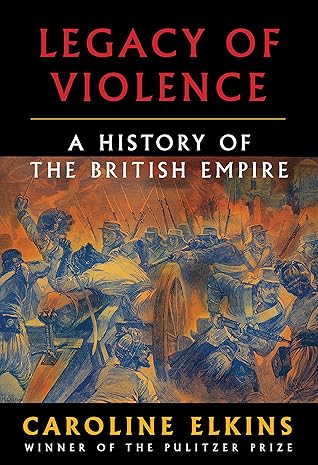More on this book
Community
Kindle Notes & Highlights
Demanding yet denying the human condition makes for an explosive contradiction. Jean-Paul Sartre Preface to The Wretched of the Earth, 1961
Colston was director of the Royal African Company when it forcibly transported around eighty-five thousand African men, women, and children, in conditions so inhumane that nearly a quarter of them perished before they reached the Americas.
Rhodes was also a great “race patriot” who had amassed a fortune, in his own words, “exploit[ing] the cheap slave labour that is available from the natives of the colonies.”[5]
“We have spent 500 years trying to stop continental European powers uniting against us,” Boris Johnson reminded his nation in the run-up to the Brexit vote.[13] Such sentiment reflected Britain’s long-standing embrace of empire and its ambivalence toward the continent.
account. Instead, my interest lies in British imperialism’s entanglement of liberalism, violence, the law, and historical claim making and the ways in which state-directed violence in the British Empire have shaped large parts of the contemporary world.
“During the time men live without a common power to keep them all in awe, they are in that condition which is called war; and such a war as is of every man against every man,” Hobbes famously wrote. During man’s natural anarchical state, there was “no account of time; no arts; no letters; no society; and which is worst of all, continual fear, and danger of violent death; and the life of man, solitary, poor, nasty, brutish, and short.”[22]
Violence was not just the British Empire’s midwife, it was endemic to the structures and systems of British rule. It was not just an occasional means to liberal imperialism’s end; it was a means and an end for as long as the British Empire remained alive.
I think this is the main point. I’m not sure. It’s a long book and she’s going to make a case for this or is she just going to describe all the horrors?
Our law is, in fact, the sum and substance of what we have to teach them. It is, so to speak, the gospel of the English, and it is a compulsory gospel which admits of no dissent and of no disobedience.”[31] British colonial officials were obsessed with this “compulsory gospel,” particularly the legitimation that law bestowed on violence.
If subject populations demanded basic rights over their own bodies and freedoms, the colonial state often criminalized them, cast their actions—including vandalism, labor strikes, and riots—as political threats, and invested police forces with legally conferred powers for suppression.[32]
it wasn’t just the structures of colonial rule that shaped coercive systems and practices, it was liberal imperialism’s ideology as well. It oftentimes cast nationalists and freedom fighters—however complicated their demands—not just as criminals but as terrorists barely clinging to the lowest rung of humanity.
Britain had a term for this: the “moral effect” of violence.[38]
While Arendt believed that in empire “Frenchmen have assumed the role of commanders of a force noire, when Englishmen have turned into ‘white men,’ ” she also cleaved to British exceptionalism.[56] “The [French] enterprise was a particularly brutal exploitation of overseas possessions for the sake of the nation,” she wrote. “Compared with this blind desperate nationalism, British imperialists…looked like guardians of the self-determination of peoples.”[57]


